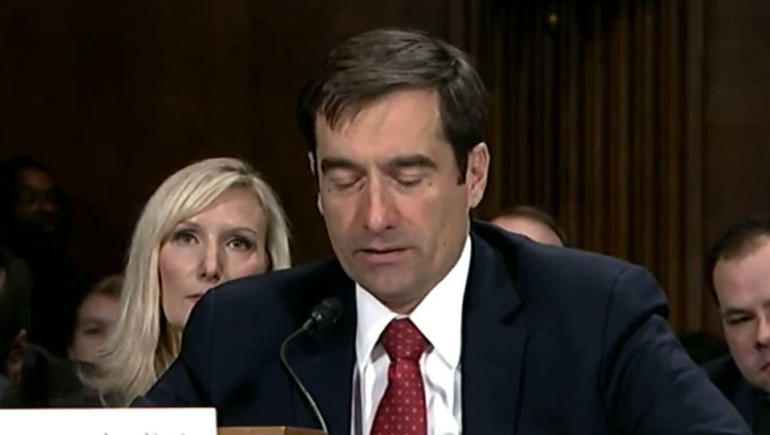Who hacked Marriott’s Starwood hotels? It’s a question still swirling around Washington, since the world’s largest hotel chain revealed the theft of personal data for 500 million travelers. Discovered in September, Marriott says the attacks began in 2014.
This week, media reports from Reuters and The New York Times connected the breach…to Beijing. It’s an allegation, China vigorously denies.
CGTN’s Jessica Stone reports.
“We oppose unwarranted accusations on cybersecurity issues. As known to all, cybersecurity is a global issue and concerns all countries’ common interest,” said Geng Shuang, China Ministry of Foreign Affairs spokesperson last week.
Yet, a top national security official told the U.S. Congress, Wednesday, that since 2011, more than 90 percent of the Department of Justice cases alleging economic espionage involve China.
“The playbook is simple, rob, replicate and replace,” said John Demers, Assistant Attorney General, U.S. Department of Justice. “Rob the American company of intellectual property, replicate that technology, and replace the American company in the Chinese market and one day in the global market.”
These accusations are being made against a rising tide of anti-China sentiment here in the United States. According to a Pew Research Center poll released in August, 38 percent of Americans view China favorably, down from 44% in 2017.
And if the American people worry about increasing Chinese influence, so does the FBI.
“We are leaning forward more from a counterintelligence perspective than I’ve ever seen us do before,” “Bill” Priestap, assistant director of the FBI Counterintelligence Division told senators, said.
In February, FBI Director Christopher Wray revealed that the agency monitors some 100 Confucius Institutes here in the U.S. The nonprofit organizations funded by Beijing teach Chinese language and culture. Some U.S. universities have now cut ties with them.
Senator John Kennedy (R-LA) asked national security officials in Wednesday’s hearing, “Do we have students from China who come here and are sent to steal our intellectual property?”
“I don’t know if the students themselves decide that they’re going to come to the U.S. to steal the sensitive research. What I’ve seen is that the Chinese government – in particular, intelligence or security services – will utilize, lean on those students,” replied Priestap.
As a result, some U.S. politicians also want U.S. authorities to conduct surveillance on Chinese students studying in the U.S. Asian American advocacy groups have expressed concern that this could increase racial profiling and discrimination.
 CGTN America
CGTN America

